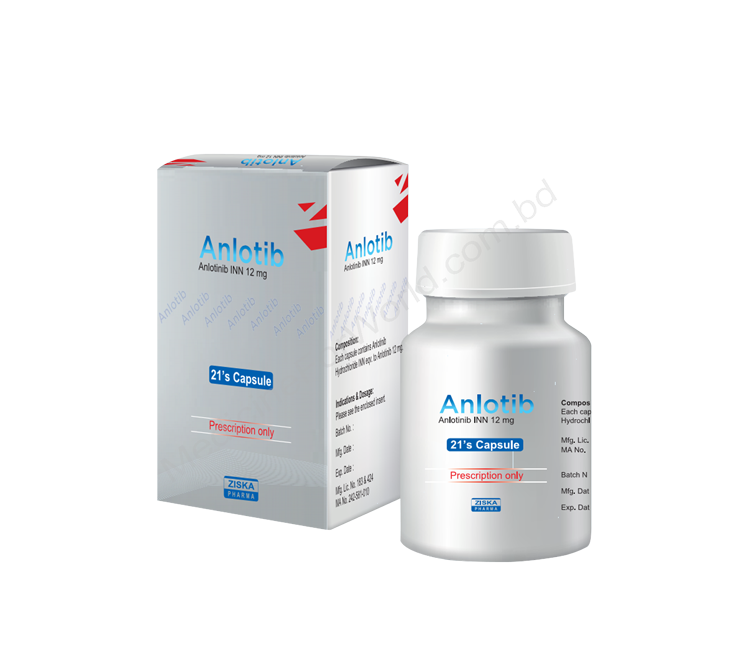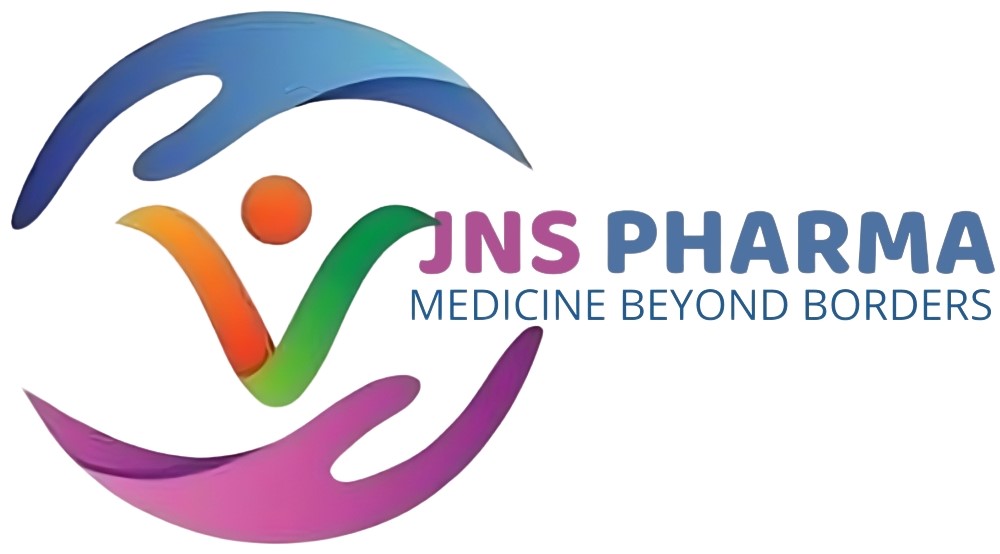Don't miss our holiday offer - up to 50% OFF!
Anlotib Anlotinib INN 12 mg Tablets

| Form | Tablet |
| Usage/Application | Personal |
| Compostion | Anlotinib 12 mg |
| Prescription/Non prescription | Prescription |
| Brand Name | Anlotib 12 mg |
| Manufacturer | Ziska Pharmaceutical |
| Treatment | Non small cell lung cancer |
| Packing Size | 21 Tablet |
| Packing Type | Bottle |
| Dosage | 12 mg |
| Shelf Life | 24 Months |
| Minimum Order Quantity | 10 Box |
Abstract
Angiogenesis has an essential role in tumor growth and metastasis, and blocking this pathway has been a successfully utilized strategy in the clinical treatment of cancer.
Anlotinib (AL3818) is a novel oral receptor tyrosine kinase inhibitor targeting vascular endothelial growth factor receptor 2 and 3, fibroblast growth factor 1‑4, platelet‑derived growth factor receptor α and β, c‑Kit and Ret. Anlotinib exerts inhibitory effects on tumor growth and angiogenesis and received its first approval as a third‑line treatment for refractory advanced non‑small‑cell lung cancer in May 2018 and its second approval as a second‑line treatment for advanced soft‑tissue sarcoma in June 2019 in the People’s Republic of China.
Anlotinib has encouraging efficacy and a manageable and tolerable safety profile in a broad range of malignancies, including medullary thyroid cancer, renal cell cancer, gastric cancer and esophageal squamous cell carcinoma. In the present review, the preclinical and clinical trials of anlotinib were summarized with a focus on safety evaluation and adverse event management. Introduction Cancer has always been a major public health problem worldwide, with 18.1 million new cases and 9.6 million deaths estimated in 2018. Despite continuous advances in multidisciplinary regimens, including surgery, chemotherapy and radiotherapy, cancer still has an unfavorable prognosis. Conventional cytotoxic chemotherapy is the cornerstone of antitumor treatment, particularly for advanced cancer.
The development of systemic toxicity and drug resistance to chemotherapy emphasizes the pressing need for better therapeutic strategies to prolong the lifespan of patients. In recent years, with the rapid progression of precision medicine, an increasing number of scientists have focused on developing precise therapeutic approaches by identifying novel molecular targeted therapies for the treatment of various types of cancer. Angiogenesis has an essential role in tumor growth and metastasis, and consequently, blocking this pathway has been a successfully utilized strategy in the clinical treatment of cancer.
Receptor tyrosine kinases (RTKs) are among the most promising therapeutic targets that modulate cell proliferation, growth, angiogenesis and metastasis in a wide range of cancers, including non-small-cell lung cancer (NSCLC), colorectal cancer (CRC) and breast cancer. The RTK family includes insulin receptors and numerous growth factor receptors, including epidermal growth factor receptor (EGFR), platelet-derived growth factor receptor (PDGFR), vascular endothelial growth factor receptor (VEGFR), nerve growth factor receptor (NGFR) and fibroblast growth factor receptor (FGFR), among others. In recent decades, there have been unprecedented advances in the development of various RTK inhibitors.
Several targeted drugs, including gefitinib, erlotinib and crizotinib, have been approved by the Food and Drug Administration of U.S.A. for NSCLC treatment. Of note, anti-angiogenesis drugs, including bevacizumab and recombinant human endostatin, have become important treatment options for NSCLC. However, no standard third-line treatment for NSCLC is available in China for patients who progressed after second-line chemotherapy. Considering the limited therapeutic response, there is still a requirement to overcome drug resistance and achieve target-specific sensitivity to decrease off-target-mediated toxicity.

